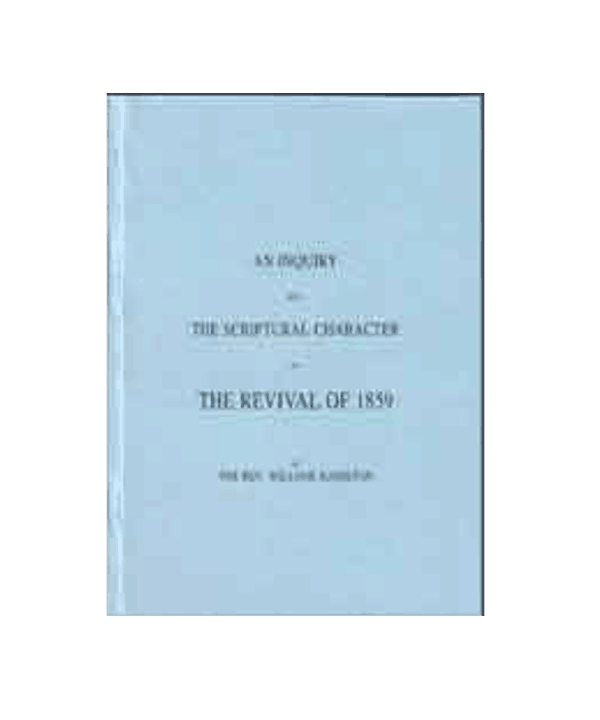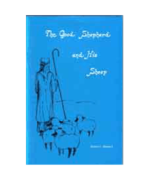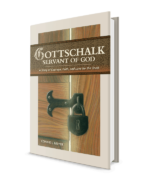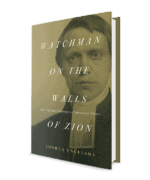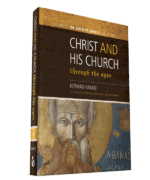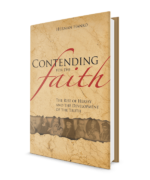Rev. Hamilton was a minister in the Presbyterian Church in Ireland and witnessed first-hand some of the characteristics of the 1859 revival in Ireland. He critiques the revival using as his standard Holy Scripture and the Westminster Confession and Catechisms.
Donald L. James in the Gospel Magazine and the Journal of the Church of England (Continuing):
Prepare for a shock! I suppose many look upon the 1859 Revival as a wonderful work of God: to dispute or deny such a claim is to invite opposition on a grand scale. The author, a minister of the Irish Presbyterian Church, witnessed all the extraordinary happenings. Written only six years after the Revival it could rightly be considered as prophetic. The Foreword states, “There is no doubt that ‘revivalism’ has captured the fancy of modern evangelicals to the extent that anyone who speaks against revivals of this sort would scarcely be considered as evangelical at all.” William Hamilton’s book is not just a searching critique of a special revival, that of Northern Ireland in 1859, but of all revivalism; things that “need to be repeated, and need to be heard.” Charles Finney, the celebrated American revivalist is quoted, with telling effect. In his Introduction to his Revival Lectures he stated, “God has found it necessary to take advantage of the excitability there is in mankind to produce powerful excitements among them, before He can lead them to obey Him … they must be so excited that they will break over these counteracting influences before they will obey God.” Arminianism run amok! “Throughout the two pages of this Introduction, the word ‘excite,’ or one or other of its variations, is used no less than five and twenty times.” The book deals with the doctrines of Scripture, of the Person and work of the Holy Spirit, of the church and its ministry, of conversion (here he explains many misconceptions) of the law and its place in the life of a Christian, and of assurance. A consequence of revivalism was the undermining of doctrine as bound up in historic church articles. It has been truly said, “Those who encourage visions, dreams, faintings, slaying in the ‘spirit’ and bodily agitations are, in effect, advocating a return to Roman Catholic mysticism” (Michael de Semlyen).
In his preface the author shows an abundance of Christian charity. “There has been considerable controversy concerning the ‘Revival’ but no one, as far as I know, has brought it to the test of Scripture. This, from the beginning, I regarded as absolutely necessary, and I endeavoured to do so according to my ability.” He continues, “The sum of all this is: True religion is obedience to the Divine will, revealed in Scripture—nothing more, nothing less. We are neither to go beyond nor come short of what the Word requires; while to misstate, misinterpret, or misapply the Word, or in any wise give it a meaning not to the Spirit’s meaning, tends to our injury and the dishonour of our heavenly Father. These things I have kept in view throughout, and the Revival, weighed in this balance, is found wanting.”
This is a remarkable, timely and important book; it is certainly revivalism under the spotlight!
An Inquiry into the Spiritual Character of The Revival of 1859, by Rev. William Hamilton (Hudsonville, MI: Reformed Book Outlet, 1993) 297 pp., (paperback). [Reviewed by Prof. Herman Hanko.]
A few explanations are probably in order before we briefly review this important book
While Rev. Gise VanBaren was working in the Covenant Reformed Fellowship [which became the Covenant Protestant Reformed Church] during the latter part of 1992 and the first part of 1993, this old book, difficult to obtain, came to his attention. It impressed him as an important book both because it spoke to current problems in Northern Ireland and Great Britain at large, and because it struck a note which is almost impossible to find in any other book. The Covenant Reformed Fellowship agreed and thought it worth printing.
The book has to do, as the title says, with revivals, particularly with the revival in Northern Ireland in 1859. It is written by a man who was a minister in the Irish Presbyterian Church from 1836 to 1874, i.e., during the years when revivals were in full force. He was a witness to them. He did not, however, participate in them.
The revival began in Kells, Co. Antrim, two miles from the CPRC manse and bookstore. It swept Ulster and surrounding areas and was hailed by all as a mighty work of God. It has since been counted among those blessed works of the Spirit that came to England, Wales, and America in the 19th century.
Rev. Hamilton was, however, not impressed with the revival. Nor was he impressed with the joy and approbation with which it was greeted. He was not impressed by it because, as he says in his Preface, “No one, so far as I know, has brought it to the test of Scripture. This, from the beginning, I regarded as absolutely necessary …”
When Rev. Hamilton put the revival to the test of Scripture, he found it wanting in all respects. He could find no good things about it by Scripture’s standard; he could recommend no part of it after every part was tested by the only rule of faith and life. This revival stands condemned.
The book is important. It is important, in the first place, because all the revivals of the 18th and 19th centuries were similar, if not identical, to the 1859 revival in Ulster. If that revival in Ulster is to be condemned on biblical grounds, the same is true of all similar revivals.
The book is important, in the second place, because many both in Reformed and Presbyterian churches look for the only possible salvation of the church today in some revival yet to come for which they earnestly pray. While this hope of revival may be stronger in the British Isles than in America, it can also be found here. Just recently I have seen in an official publication of a Reformed church an earnest call to God’s people to pray for revival. Perhaps those who now long and pray for revival will understand the wrong of it if they read Hamilton’s penetrating analysis.
Hamilton’s analysis is complete. He deals with the idea of revival as such, but also treats related issues such as a lay ministry, women teaching in the church, revival meetings, testimonies at public meetings, ecumenical cooperation in revivals, religious excitement as found in revival circles, and visions which those under the power of the revival claim to have had.
Yet these practical issues are weighed in the light of more profound doctrinal issues: the doctrines of the church and the ministry of the Word, of the person and work of the Holy Spirit, of conversion and Christian assurance, of the law and its place in the Christian life.
Hamilton’s conclusion, after weighing all the evidence in the light of Scripture and the historic Westminster Creeds, is that the revival was not the work of the Spirit at all, that it was in fact a movement destructive of the Christian faith and church, and that it is, therefore, to be condemned.
These things badly need saying, and we are grateful that a book which says them is now available.

